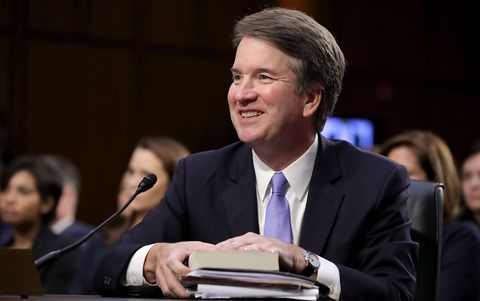
http://www.politico.com
For weeks it appeared that DC Circuit Court Judge and Supreme Court nominee was headed for confirmation. Then in a monuments turn of events, a letter accusing Brett Kavanaugh of sexual assault held by Judiciary Committee Ranking Member Sen. Diane Feinstein (D-CA) was leaked to the press. In the letter, Christine Blasey Ford, a professor at Stanford University, unveiled allegations that Brett Kavanaugh had attempted to rape her in the mid 1980s at a party during high school. Suddenly, Kavanaugh confirmation appeared in doubt and a hearing was set up to hear both the allegations of Dr. Ford and the defense of Judge Brett Kavanaugh.
Shortly after the first accusation, more accusations surfaced from a Yale classmate who said Kavanaugh inappropriately revealed himself in front of her and a client of Michael Avenatti who accused Kavanaugh and his friends of orchestrating gang rapes of multiple women in high school. These accusations focused the media’s attention on Kavanaugh’s drinking habits during high school and college where many remembered him as a heavy drinker.
During the hearing, Republicans hired a female sex prosecutor from Arizona to carry out their questioning and point out the gaps in her story. However, Ford came off as very compelling and credible in the eyes of the large majority of Americans and the media. However, in his portion of the hearing, Brett Kavanaugh came out swinging in his defense of his character and reputation. He displayed emotion both in his anger and in sadness. Republicans also used speeches to push back on the accusations and the Democratic attacks.
On the day of the Judiciary Committee, Sen. Jeff Flake (R-AZ) in a surprised move said that he would only support Kavanaugh out of committee if a 1 week FBI investigation was created to look into the allegations. After the FBI report was released and Senators began to read it, it was clear that the political tide had shifted in Brett Kavanaugh’s favor. Swing votes Sens. Susan Collins (R-ME), Jeff Flake (R-AZ), and Joe Manchin (D-WV) voted in favor of Kavanaugh while Sens. Lisa Murkowski (R-AK) and Heidi Heitkamp (D-ND) voted against his nomination. This vote was the closest Supreme Court vote in the past 100 years and solidified the conservative majority on the Supreme Court for a generation to come.



